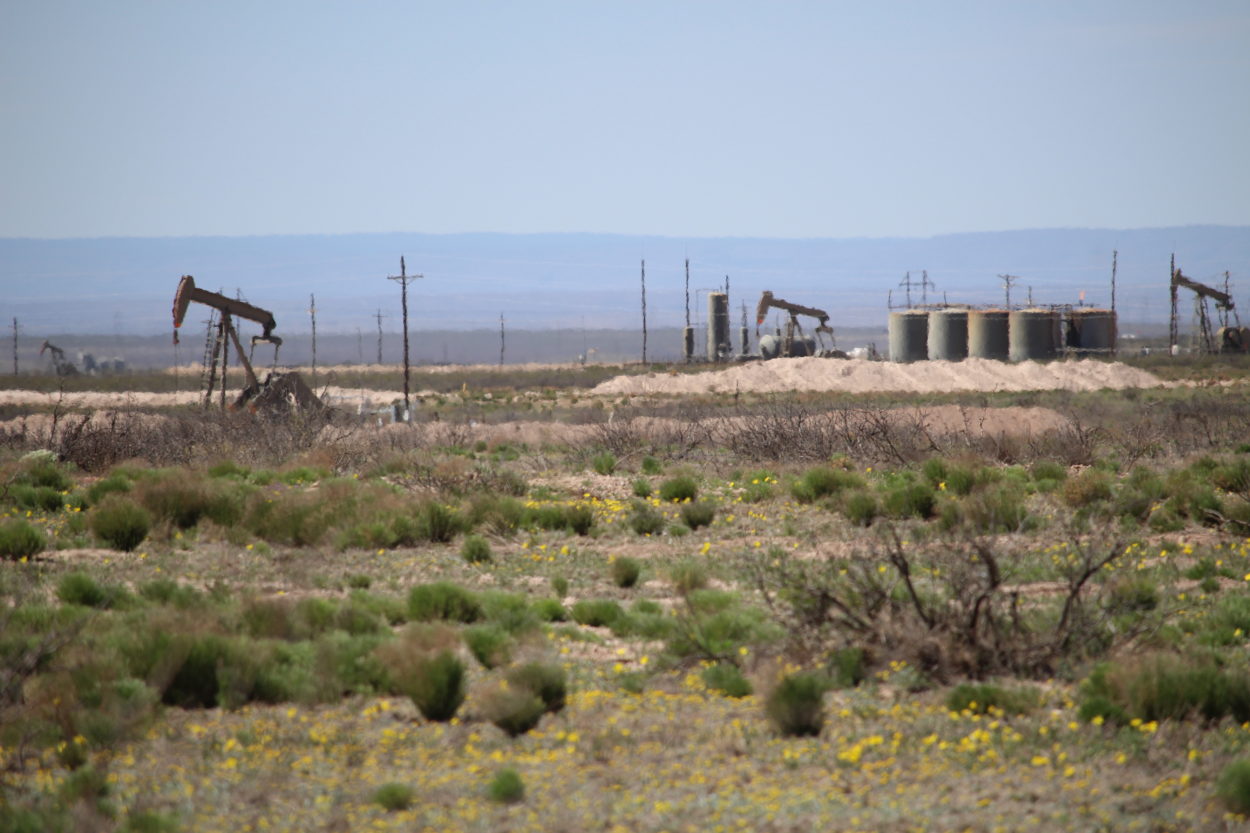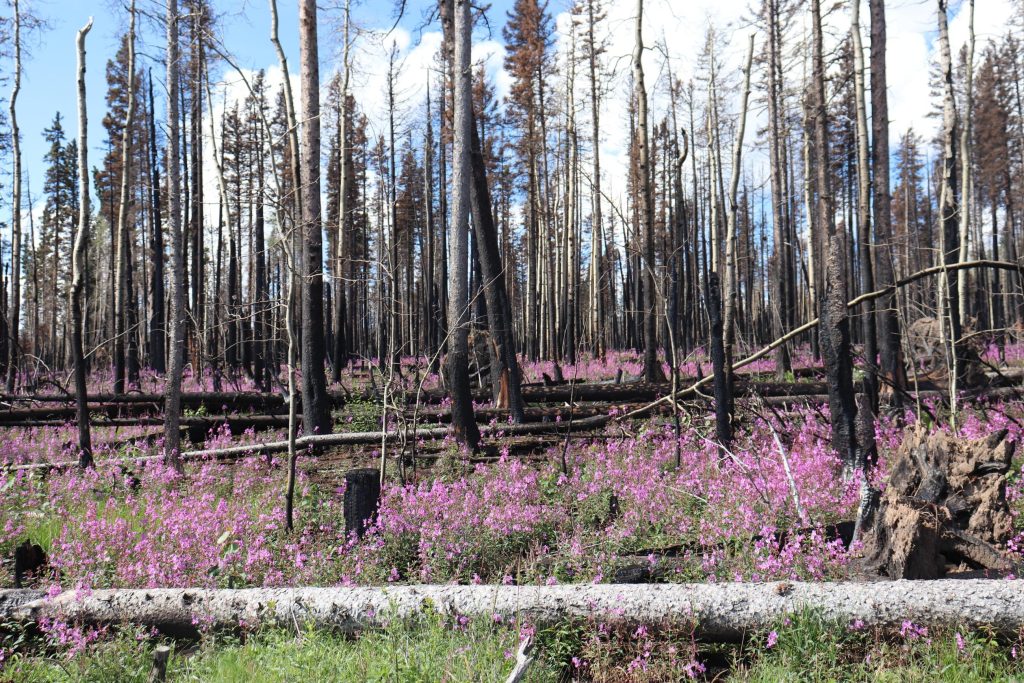This story was originally published by Reveal from The Center for Investigative Reporting, a nonprofit news organization based in the San Francisco Bay Area. Learn more at revealnews.org and subscribe to the Reveal podcast, produced with PRX, at revealnews.org/podcast.
Gathered for a private meeting at a beachside Ritz–Carlton in Southern California, the oil executives were celebrating a colleague’s sudden rise. David Bernhardt, their former lawyer, had been appointed by President Donald Trump to the powerful No. 2 spot at the Department of the Interior.
Just five months into the Trump era, the energy developers who make up the Independent Petroleum Association of America had already watched the new president order a sweeping overhaul of environmental regulations that were cutting into their bottom lines — rules concerning smog, fracking and endangered species protection.
Dan Naatz, the association’s political director, told the conference room audience of about 100 executives that Bernhardt’s new role meant their priorities would be heard at the highest levels of Interior.
“We know him very well, and we have direct access to him, have conversations with him about issues ranging from federal land access to endangered species, to a lot of issues,” Naatz said, according to an hourlong recording of the June 2017 event in Laguna Niguel provided to Reveal from The Center for Investigative Reporting.
The recording gives a rare look behind the curtain of an influential oil industry lobbying group that spends more than $1 million per year to push its agenda in Congress and federal regulatory agencies. The previous eight years had been dispiriting for the industry: As IPAA vice president Jeff Eshelman told the group, it had seemed as though the Obama administration and environmental groups had put together “their target list of everything that they wanted done to shut down the oil and gas industry.” But now, the oil executives were almost giddy at the prospect of high-level executive branch access of the sort they hadn’t enjoyed since Dick Cheney, a fellow oilman, was vice president. Ryan Zinke left the Interior Department in early January, resigning amid an ethics scandal. President Donald Trump has nominated David Bernhardt, the deputy secretary, to the post.Credit: Cliff Owen/Associated Press
“It’s really a new thing for us,” said Barry Russell, the association’s CEO, boasting of his meetings with Environmental Protection Agency chief at the time, Scott Pruitt, and the then-Interior Secretary, Ryan Zinke. “For example, next week I’m invited to the White House to talk about tax code. Last week we were talking to Secretary Pruitt, and in about two weeks we have a meeting with Secretary Zinke. So we have unprecedented access to people that are in these positions who are trying to help us, which is great.”
In that Ritz-Carlton conference room, Russell also spoke of his ties to Bernhardt, recalling the lawyer’s role as point man on an association legal team set up to challenge federal endangered species rules. “Well, the guy that actually headed up that group is now the No. 2 at Interior,” he said, referring to Bernhardt. “So that’s worked out well.”
Today, Bernhardt is in line for a promotion: the former oil industry lobbyist has been nominated by Trump to be secretary of the Interior. The Senate Energy and Natural Resources Committee will hold a confirmation hearing Thursday, March 28. Bernhardt has been running the department since early January, when Zinke resigned amid an ethics scandal. The post gives Bernhardt influence over regulations affecting energy production on millions of acres of public lands, deciding who gets to develop it, how much they pay and whether they are complying with the law.
An Interior Department spokeswoman, Faith Vander Voort, said, “Acting Secretary David Bernhardt has had no communication or contact with either Barry Russell or Dan Naatz.” The IPAA executives were not available to comment on this story, a spokeswoman said.
At the meeting, the association’s leaders distributed a private “regulatory update” memo that detailed environmental laws and rules that it hoped to blunt or overturn. The group ultimately got its way on four of the five high-profile issues that topped its wish list.
Trump himself was a driving force behind deregulating the energy industry, ordering the government in 2017 to weed out federal rules “that unnecessarily encumber energy production.” In a 2017 order, Zinke called for his deputy secretary—Bernhardt—to make sure the department complied with Trump’s regulatory rollbacks.
The petroleum association was just one industry group pushing for regulatory relief — the American Petroleum Institute, the U.S. Oil and Gas Association and the Western Energy Alliance also were active. But since IPAA created its wish list, the Interior Department has acceded to nearly all its requests:
* Rescinded fracking rules meant to control water pollution. Frackers pressure-inject water and chemicals into the ground to break up rock and release oil and gas. In 2015, the Interior Department’s Bureau of Land Management moved to minimize water pollution caused by fracking, setting standards for well construction and proper management of fracking fluids. For the first time, the new rule also required frackers to get federal permits, a costly and time-consuming process, the industry complained.
The IPAA sued, contending the rule was not needed because fracking was already regulated by states. Under Trump, Interior sided with the energy industry, and in 2017 the rule was rescinded.
* Withdrawn rules that limit climate-change causing methane gas releases. An oil strike can release clouds of methane, a potent greenhouse gas. When producers lack the means to capture methane and sell it as natural gas, they either burn it or release it into the air. In 2016, to fight global warming, the BLM issued a rule sharply limiting these practices and imposing a royalty fee on operators who wasted natural gas on public lands.
IPAA sued, complaining producers would face huge financial losses. Trump’s Interior Department sided with the industry and in 2018 rescinded key provisions of the rule.
* Abandoned environmental restoration of public land damaged by oil development. To offset the harm of oil production, the BLM often required producers to pay for restoration projects as a condition of their permits. This practice of “compensatory mitigation” is used by many government agencies. In 2015, then-President Obama ordered Interior to set a goal of “no net loss for natural resources” when issuing development permits.
IPAA pushed back hard against the “no net loss” standard, arguing that developers might be saddled with exorbitant mitigation costs. In 2017, Trump himself ordered the repeal of the Obama mitigation rule. Interior Secretary Ryan Zinke attacked the concept as “Un-American.”
* Ended long-standing protections for migratory birds. Every year, millions of migratory birds are killed when they fly into power lines, oil waste pits and other energy development hazards, the U.S. Fish and Wildlife Service says. Since the 1970s, the service has promoted industrial safety practices to protect birds from accidental harm—and has prosecuted and fined energy companies responsible for the deaths of these birds.
IPAA complained it was unfair to prosecute energy companies engaged in legal activities that unintentionally harmed birds. In 2017, Trump’s Interior Department called a halt to prosecuting companies for the “incidental” deaths of birdlife. Bernhardt played an important role in crafting the legal opinion that gutted these protections, emails obtained through the Freedom of Information Act show.
“The IPAA’s wish list was granted as asked, in the executive order, and in the actions taken by the Department of the Interior,” said Nada Culver, senior counsel for the Wilderness Society environmental group, who reviewed the document for Reveal. “It pains me to say it.”
Bernhardt began his career as an aide to then-Rep. Scott McInnis, a Colorado Republican elected in 1992. In 1998, he quit to work at the powerhouse Washington lobbying firm of Brownstein, Hyatt.
After President George W. Bush took office, Bernhardt returned to government as a political aide to Secretary of the Interior Gale Norton, a fellow Coloradan. He worked on the administration’s push to reverse a congressional ban on drilling for oil in Alaska’s Arctic Wildlife Refuge. In 2006, he was promoted to solicitor, the department’s top lawyer. A July 2001 file photo shows the coastal plain of Alaska’s Arctic National Wildlife Refuge. Under the George W. Bush administration, David Bernhardt worked to reverse a congressional ban on oil drilling in the refuge.Credit: Al Grillo/Associated Press
In 2009, he rejoined the Brownstein firm and became head of its natural resources department. Over the years, he lobbied or provided legal advice to about 40 clients, many of them companies seeking to block the force of environmental regulations administered by Interior. Among his clients were 18 energy concerns, including offshore oil drillers, frackers and operators of coal-fired power plants. His federal ethics report showed he had worked for IPAA since at least 2015.
After Trump was elected, Bernhardt served on the new administration’s transition team, then was named Zinke’s deputy. A coalition of 150 environmental groups opposed Bernhardt’s appointment, calling him a “walking conflict of interest” because so many of his former clients were subject to Interior Department regulations.
Bernhardt’s Senate confirmation hearings were roiled when a collection of his emails, reported by Reveal, showed he had continued to give political advice to the Westlands Water District, a California agribusiness concern, for months after he told Congress he had quit lobbying.
Bernhardt promised to follow Interior’s ethics rules, which call for him to recuse himself for up to two years on matters involving former clients. Deputy Secretary of the Interior David Bernhardt (foreground) and Jack Gerard, American Petroleum Institute president and CEO, head up to speak during the July 2018 state of Colorado energy luncheon sponsored by the Colorado Petroleum Council.Credit: David Zalubowski/Associated Press
“I believe that public trust is a public responsibility and that maintaining an ethical culture is important,” he told senators, and the Senate confirmed his appointment. At Interior, to remind himself of conflict of interest concerns, Bernhardt carries a wallet-sized card listing former clients covered by his ethics recusals, the Washington Post reported.
Interior Department lawyers say Bernhardt is permitted to work on matters affecting his former clients, such as the petroleum association, as long as the issues affect a broad group of players, not just the one client. But the watchdog group Campaign Legal Center has filed a complaint accusing Bernhardt of ethics violations for working on California water issues favored by Westlands, his former lobbying client.
Bernhardt’s recusal concerning the petroleum association expires in August and his official calendars do not reflect any meetings to date with IPAA officials.
The oil lobby has had ready access to top administration officials, both inside the Interior and out, according to public records and the lobby leaders themselves. Since Bernhardt began work at the department, the IPAA has spent more than $1.3 million lobbying the department and other federal agencies, according to data from the Center for Responsive Politics.
In April 2018, an IPAA contingent led by Naatz, the political director, met with Bernhardt’s top aide, Todd Willens, concerning two issues from the wish list: migratory birds and mitigation. Hours later, Willens met with Bernhardt, but a copy of Willens’ calendar doesn’t state the topic of their meeting.
It was the kind of access the group had begun to marvel at the year before in the plush confines of their Southern California resort. On the recording, Russell, the IPAA’s CEO, described an extended meeting he had already had with Pruitt, a former Oklahoma attorney general and climate-change doubter whose tenure at EPA would be cut short by ethics scandals. What started as a simple meet-and-greet became an invitation to critique the EPA’s air pollution regulations, the oil executive said.
“Scott Pruitt, he came from Oklahoma, and we have a lot of friends in common and I thought that’s what we were going to talk about, we did that for about three minutes,” Russell said. “And then he started asking very technical questions about methane, about ozone … and if Scott Pruitt thought he was going to go deep nerd …”
The audience began laughing.
“And what was really great is there was about four or five EPA staffers there, who were all like, ‘Write that down, write that down,’ all the way through this,’’ Russell continued. “And when we left, I said that was just our overview.”
The audience laughed again.
“So it’s really a new world for us and very, very helpful.”
Naatz predicted Bernhardt would actually run the department while Zinke would play a ceremonial role.
“What secretaries of Interior do is go out to Yellowstone, go out to Tetons … have big vision for what they’re going to do,” he said. “David is going to be the COO. David’s going to move the pieces. David’s going to be part of that, and we know him well.”
He also warned of what could go wrong in the Trump era.
Trump was slow to make middle-level appointments at the regulatory agencies to carry out the pro-industry policies he ordered, Naatz contended. Without supervision, career federal employees might well slow-walk, or resist the sweeping regulatory changes the industry favors, he said.
“If you don’t have the politicals pushing down, bureaucracy is going to take over and push up,” Naatz said.
Another problem was what he called “the gorilla in the room.” The investigation into Trump’s ties to Russia was “hampering everything that is going on,” he said. He groused about Trump’s “inane tweets that come out after midnight,” and faulted the entire White House for lack of focus.
“They have got to be better on message because they are going to lose the opportunity. It’s an unbelievable opportunity, you have Republicans controlling both houses of Congress, and the administration and so they need to get their act together and start to move,” he said.
When “you are talking about issues that are important to you, the Republicans win,” he continued. “If you are talking about Michael Flynn and Russia, you are going to lose. And so it’s really important to carry that narrative on energy, on infrastructure, on all these issues.”
Reveal reporter Elizabeth Shogren contributed reporting for this story.
Lance Williams can be reached at [email protected]. Follow him on Twitter: @LanceWCIR.























